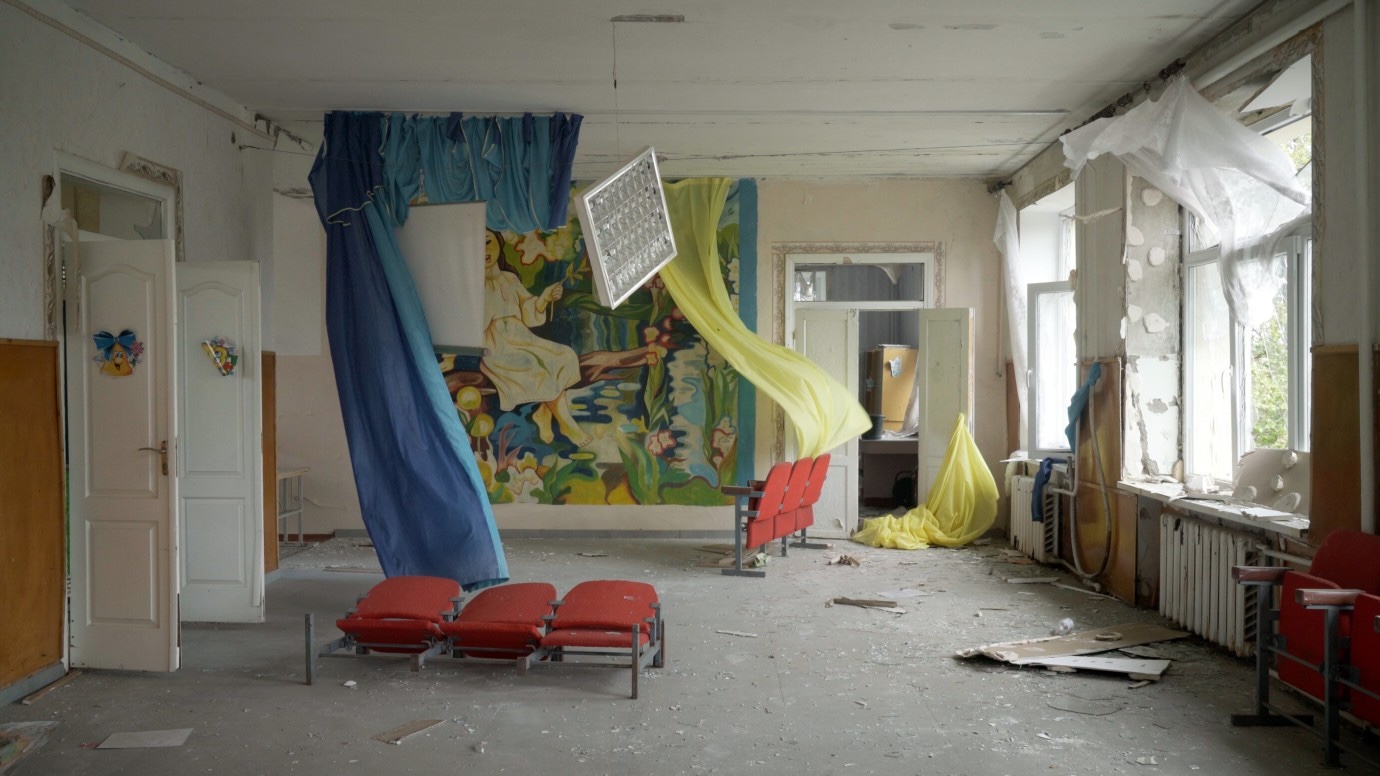


Oksana Karpovych: Intercepted

“I wanted to show the dehumanization”, the director said in an interview with Business Doc Europe. Indeed, she succeeded. The film is a masterly done narrative construction with an image side and a sound side that each works on its own. Where the images, cameraman Christopher Nunn, are taken from the front seat of a car driving through empty villages AND, mostly, almost still-life’s of ruined houses from inside and outside, places where Russian soldiers have been, leaving – an understatement – a mess with a lot of looting to be seen… and heard
… as phone calls intercepted by the Ukrainian Special Services from March-November 2022 are being used to accompany the mentioned images. Or the other way around. Looting – “It’s nice to be in civilised sneakers” and “they have awesome ice cream here”, one soldier says to his mother or wife or girlfriend, who are in the other end of the line, calling or being called. Without hesitation soldiers talk about killing civilians, mostly being applauded by their relatives back home. Later in the film, a soldier talks about eating a dog as there is not enough food, with rotting corpses around them. Another one states that there are only two ways of coming home – dead or injured!
However, the reactions from the relatives are the most shocking. “No, you don’t kill children, you kill fascists”, one is saying after a soldier states that they are told to killed whatever stands in their way. There is so much hatred in these conversations. One soldier is quite detailed, when he describes the methods of torture they are using towards their prisoners. “Barbecue them all, make kebabs of those Khokhols”, a woman responds.
The film also includes a sequence with Russia war prisoners lining up to get some food. No comments here. And observations from an underground cellar with two old women, cut to a younger woman who is preparing soup for them. Compassion. And people queuing for food, Ukrainians helping each other. Not to forget a beautiful scene, where a husband is caressing a cow, while his wife is milking it. When the bucket is full, they leave on a scooter. Life goes on… makes me think of Humphrey Jennings and his propaganda films during WW2.
A clever thought film, so well built, shocking sound pieces to images of devastation but like in Alain Resnais “Night and Fog” no corpses. The right choice. The director is a true “auteur”.
Canada, France, Ukraine, 2024, 92 mins.